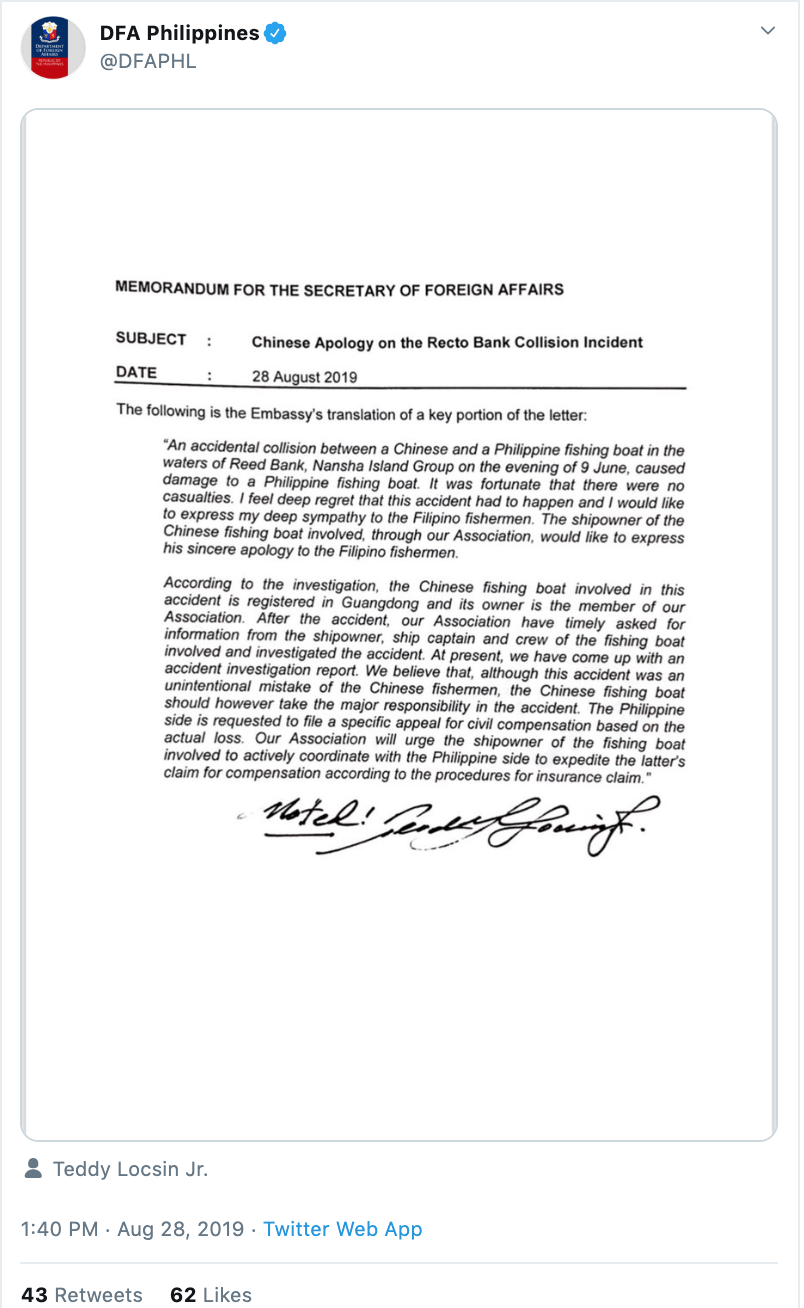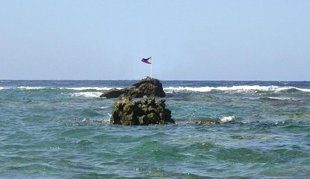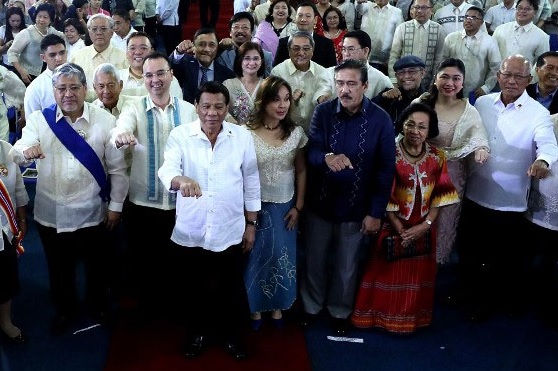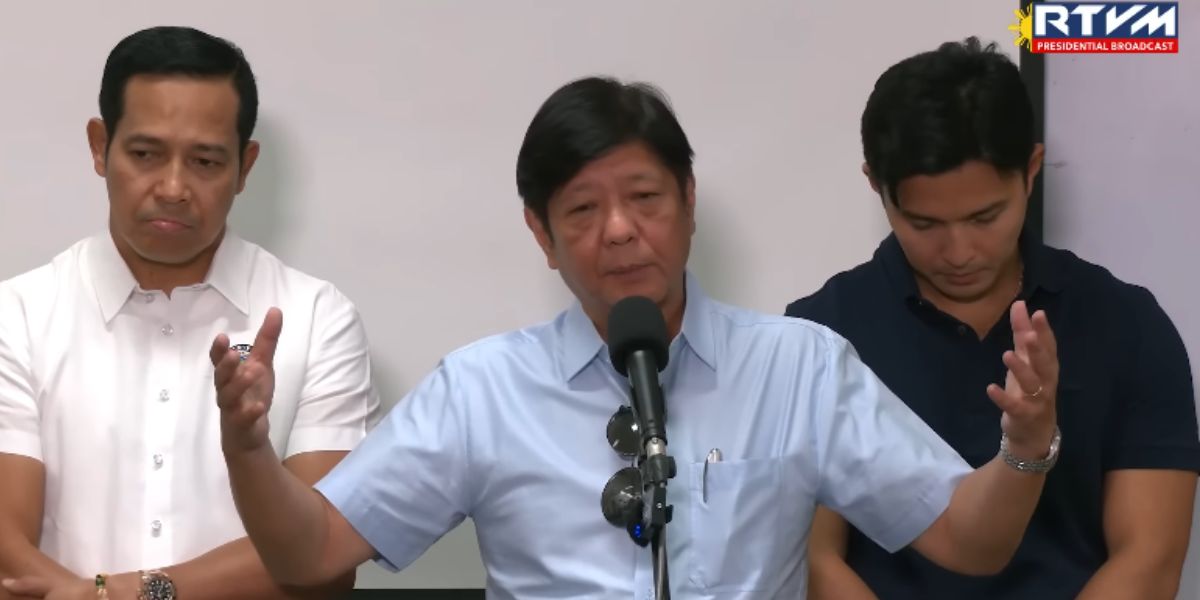A Chinese association, in an apology sent to the Department of Foreign Affairs (DFA) on the June 9 incident where a Chinese vessel sunk a Philippine fishing boat, is wrong in saying Reed Bank, locally known as Recto Bank, is part of the Nansha Island Group.
Nansha Islands, internationally known as the Spratly Island Group, has been claimed by China as its own, saying it has “indisputable sovereignty” over all islands and their “adjacent waters.”
STATEMENT
In an Aug. 28 memorandum addressed to Foreign Affairs Secretary Teodoro Locsin Jr., the Philippine Embassy in Beijing provided a translation of a “key portion” of the apology letter from the Guangdong Fishery Mutual Insurance Association sent on Aug. 26:
“An accidental collision between a Chinese and a Philippine fishing boat in the waters of Reed Bank, Nansha Island Group on the evening of 9 June, caused damage to a Philippine fishing boat.”
Source: Department of Foreign Affairs official Twitter account, Chinese Apology on the Recto Bank Collision Incident, Aug. 28, 2019
pic.twitter.com/eBaP96Jqrx
— DFA Philippines (@DFAPHL) August 28, 2019
The translated letter mixed English and Chinese names for the maritime features mentioned, based on the glossary of geographic names cited in the 2016 decision of the Permanent Court of Arbitration (PCA) on the South China Sea Dispute.
The memo used “Reed Bank” instead of “Liyue Tan” (Recto Bank in the Philippines), but opted to use “Nansha Island Group,” instead of the Spratly Island Group (Kalayaan Island Group in the Philippines).
FACT
Recto Bank is part of the Philippines’ exclusive economic zone (EEZ).
China claims indisputable sovereignty, sovereign rights, and jurisdiction over the entire waters in the Spratly Island Group and its adjacent waters, where, it alleges, Recto Bank is situated.
In one of its submissions to the PCA, the Philippines recounted a March 2011 conversation it had with the Chinese Embassy, during which the latter claimed China had “indisputable sovereignty over the waters of Nansha Islands where Reed Bank is situated.”
But the court ultimately ruled that:
“…none of the high-tide feature in the Spratly Islands is a fully entitled island…[and] thus no maritime feature in the Spratly Islands…is capable of generating an entitlement to an exclusive economic zone or continental shelf…”
Source: Permanent Court of Arbitration, South China Sea Arbitration Award, July 12, 2016, p. 278
The PCA also said that Recto Bank, together with Mischief Reef and Second Thomas Shoal, is “submerged at high tide” and forms “part of the exclusive economic zone and continental shelf of the Philippines.”
These features “are not overlapped by any possible entitlement of China,” the court added.
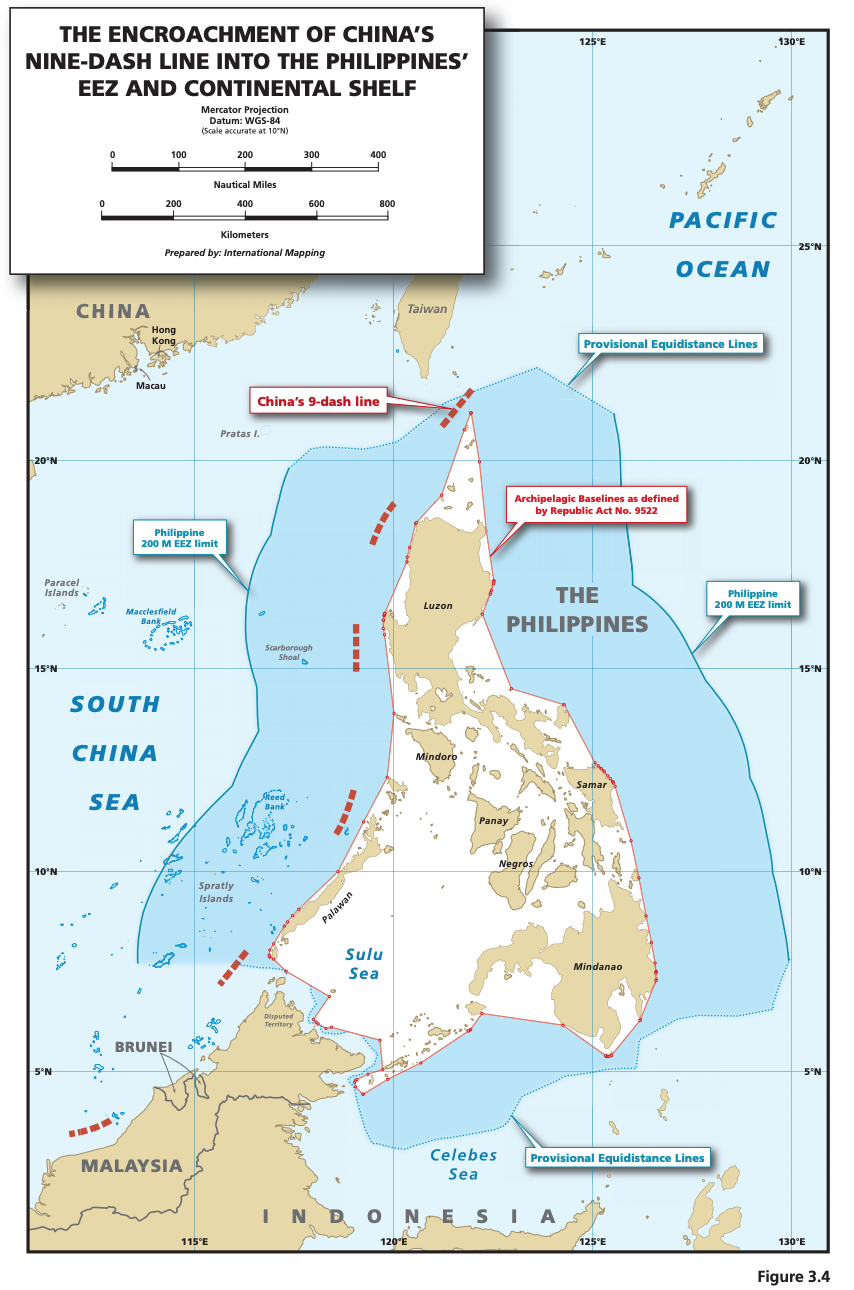
Recto Bank, completely submerged underwater and a continental shelf by definition, is within the country’s 200-nautical-mile EEZ. It is located about 85 nautical miles west of Puerto Princesa, and is part of the province of Palawan. The Malampaya gas field is adjacent to Reed Bank.
Recto Bank falls within the area defined by the United Nations Convention on the Law of the Sea (UNCLOS) as part of the territory of a coastal state which has the sovereign right to explore, exploit, conserve, and manage the natural resources found there.
Aside from China, Vietnam and Taiwan also have claims on Recto Bank, where oil and gas deposits abound: 1.035 million hectares of potential gas field worth some $23.2 billion, according to Department of Energy estimates.
Sources
Permanent Court of Arbitration, South China Sea Arbitration Award, July 12, 2016
Baviera, Aileen and Batongbacal, Jay. The West Philippine Sea, the territorial and maritime disputes from a Filipino perspective, A Primer, July 15, 2013
(Guided by the code of principles of the International
Fact-Checking Network at Poynter, VERA Files tracks the false claims,
flip-flops, misleading statements of public officials and figures, and
debunks them with factual evidence.
Find out more about this initiative and our methodology.)
